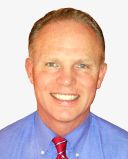Like the catch-phrase of a popular song, by force of repetition a handful of current events can become lodged in our collective consciousness. Mistaking familiarity for relevance, we may be led to a falsely restricted narrative about life and its challenges. Isis and heinous acts of terrorism, refugee crises, and the spread of dreaded diseases; domestically, a spiritless economy, simmering social tensions that sometimes erupt into hateful behavior, and soaring national debt. The drumbeat of the headlines tells one story: the world can be a cold, dangerous place, and life in it is often full of insecurity and angst.
If we succumb to the hypnotic induction of the media, we might wrongly conclude that, powerless in the face of mighty factors, our only alternatives are either to hide under our beds cowed and nerve-rattled, or to find a savior.
Because the hero motif is so potent an archetype, in these frightening times it is no wonder that movies featuring comic book characters who possess superhuman powers to fight and defeat evil are currently enjoying immense popularity. Or that the presidential election process is garnering unprecedented attention. Are we clamoring for a rescuer to set things right again? If so, who? Superman? Wonder Woman? Trump? Hillary?
Why not you?
Tempting as it may be to hitch your wagon to a perceived star and rely on a guardian, you sell yourself short and engage in a fatal surrender of personal power. I’m afraid that viewing problems and their solutions so far out of direct reach is a setup for disappointment and failure. In fact, most people do not recognize they have much greater control of their quality of life than they are accustomed to thinking they do. From whom did I learn this great lesson? From perhaps the unlikeliest and most decidedly unheroic sources imaginable: nursing home residents.
In the nursing home setting, where people are humbly engaged in the essential activities of life, I have neither enacted nor have I observed any miracles. As I discuss in my book1, however, there is magic in the mundane. Master a few of these everyday factors and we can almost assure ourselves a sense of wellbeing regardless of circumstances and conditions. Our salvation is not in a national leader or government agency, but in our personal agency.
What are these factors that we can use to our benefit? The efficacy of love as a healing agent was evident in my work with Jonathan, the gentleman who, while suffering in the nursing home with crippling heart and respiratory conditions, lost his wife to cancer and was still grieving over the premature losses of two of his children. Jonathan was helped to heal the most horrific of emotional wounds with compassion and tender loving care expressed with words. Yes, when skillfully chosen, words may act as medicine for our ailing souls.
Social connections are our most valuable human resources as is apparent in the cases of Frank and Angelo, two other nursing home residents. Frank, with ALS, and Angelo, with Parkinson’s disease, both facing progressive terminal conditions, traveled different courses. Frank managed well, Angelo poorly. The critical difference? Frank maintained good relations with his family—and made friends in the nursing home—Angelo did not.
The role of free will in making healthy choices was illustrated by Brooke, who was miserably unhappy at the nursing home until she chose to forgive her family, accept the need to be in the care center, and adopt a positive attitude, all decisions under her control.
Tina focused almost exclusively on spiritual practice—the essential factor in comforting herself in an otherwise isolated and limited life. Through religious activities she found increased tolerance of her suffering, felt a part of a larger community, and experienced a reduced sense of loneliness.
Countless other residents have taught me that feelings provide the basis for understanding ourselves and others, and that they serve as important sources of communication and motivation.
Use words to heal others as well as yourself, participate in good relationships, choose to employ a productive attitude, forgive your offenders, accept things you cannot change, practice some form of spirituality, and relate well to your feelings and those of others, and you have the foundation of a good life. When you tend to yourself and to your immediate surround, you will see that these factors are how your garden grows. Yes, be a good citizen, study the presidential candidates and make a well-informed decision. But remember, like the nursing home-dwelling elder from whom we can learn much, the quality of your life is going to be determined more by square-foot living than by global activities. You are the only candidate for this job.
1. Charles E. Dodgen, Simple Lessons for a Better Life: Unexpected Inspiration from Inside the Nursing Home (Amherst, NY: Prometheus Books, 2015).
To buy Simple Lessons for a Better Life: Unexpected Inspiration from Inside the Nursing Home: http://www.prometheusbooks.com/index.php?main_page=product_info&cPath=3…


